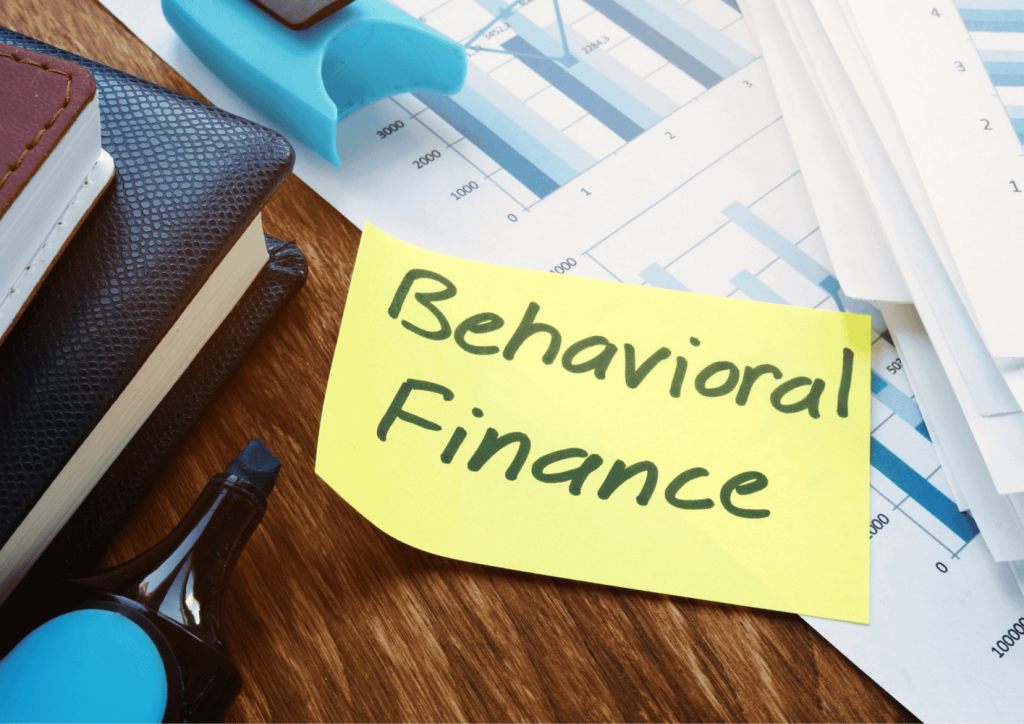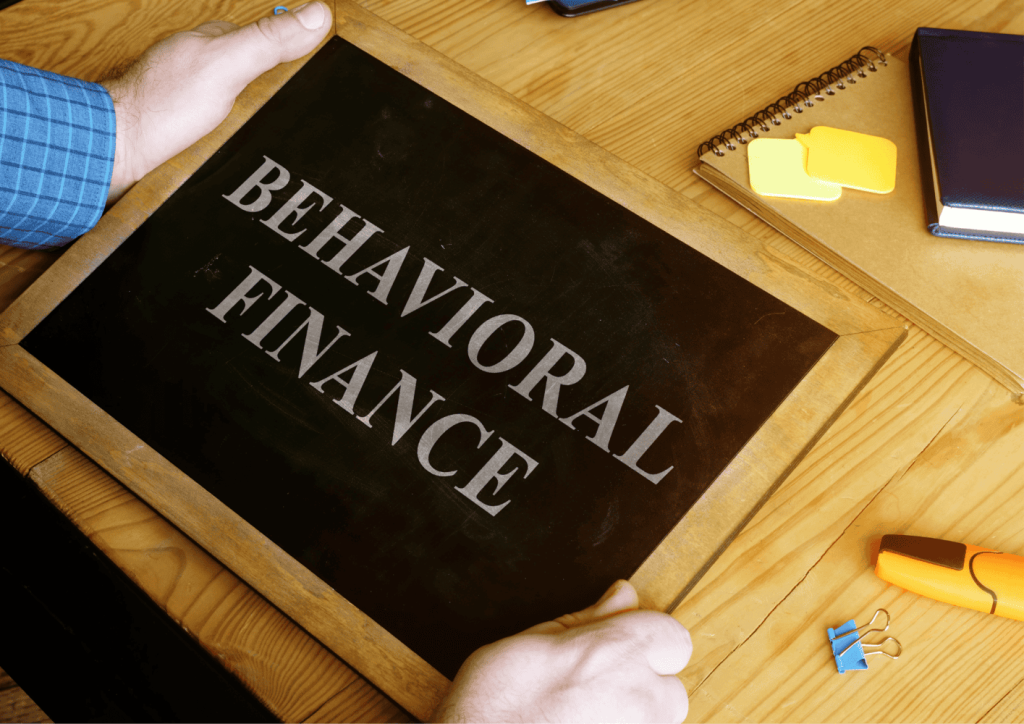Behavioral finance, a significant branch of behavioral economics, is essential in comprehending the complexities of financial markets. This domain focuses on how psychological factors and personal biases shape trading decisions, often leading to irrational financial behavior. Recognizing these aspects is crucial, especially in volatile markets like Forex, where even seasoned investors are prone to cognitive errors.
The impact of behavioral finance extends to the core of financial decision making in trading. By exploring key concepts such as confirmation bias and emotional responses, this field sheds light on why investors, regardless of their experience, may make decisions that defy logical financial principles. Understanding these psychological influences is vital for traders and investors aiming to navigate the intricacies of the financial markets more effectively.
Identifying Behavioral Finance Biases in Trading

In the realm of trading psychology, behavioral finance biases play a pivotal role in shaping investment strategies. Key biases like confirmation bias, overconfidence bias, and herd behavior heavily influence how traders and investors make decisions. These biases often cause a divergence from rational expectations, leading to potentially suboptimal financial outcomes. Acknowledging and understanding these biases is imperative for financial professionals and traders seeking to align their strategies more closely with rational, data-driven approaches.
The influence of these biases extends to the very core of financial decision making. Confirmation bias can lead traders to seek information that supports their preconceptions, ignoring contrary data. Overconfidence bias often results in underestimating risks and overestimating one's own trading ability, while herd behavior can cause investors to follow market trends irrationally. For financial professionals, a deep comprehension of these biases is essential to navigate the complex dynamics of the market and to make decisions that are more objective and grounded in rational analysis.
The Role of Mental Accounting in Financial Choices

Mental accounting, a fundamental concept in behavioral finance, describes the tendency of investors to divide their money into separate ‘mental' accounts, each with different values and purposes. This cognitive process significantly shapes how individuals perceive and manage their finances. By influencing the way people categorize their funds, mental accounting can lead to distinct patterns in spending, saving, and investing, thereby impacting overall financial decision making and potentially the outcomes of investment gains and losses.
This cognitive bias can subtly affect both short-term and long-term financial planning. For instance, money allocated in a ‘savings' mental account might be treated more conservatively than money in a ‘gambling' account, despite being the same in real terms. Such distinctions, although mentally constructed, have real-world implications on investment decisions. Recognizing and understanding mental accounting is crucial for investors and financial advisors alike, as it plays a critical role in shaping financial strategies and managing investment portfolios more effectively.
The Influence of Behavioral Economics on Stock Market Trends
Behavioral economics offers insightful explanations for the diverse trends observed in the stock market. It highlights how cognitive biases, such as anchoring bias, familiarity bias, and experiential bias, influence investor behavior. These biases can significantly affect trading decisions during critical market phases, be it a downturn or a rally. Even the most rational financial analysts are not immune to these biases, which behavioral finance theory suggests can sway their judgments and market predictions.
The principles of behavioral economics shed light on why and how investors might react irrationally under certain market conditions. Anchoring bias causes investors to rely heavily on initial information, familiarity bias leads them to prefer known stocks, and experiential bias influences decisions based on past experiences, regardless of current market data. Understanding these biases is crucial for anyone involved in the stock market, as they play a key role in the collective decisions that drive market trends and movements. This knowledge enables investors and analysts to better anticipate market changes and make more informed investment decisions.
Efficient Market Hypothesis vs. Behavioral Finance

The Efficient Market Hypothesis (EMH) presents a viewpoint where stock prices are believed to reflect all available information, suggesting that markets operate on a rational basis. However, this theory is challenged by the concepts of behavioral finance, which bring to light the prevalence of irrational behavior in financial markets. Behavioral finance argues that various psychological influences and cognitive biases can lead to significant market inefficiencies, thereby contradicting the rational market assumptions of EMH.
Behavioral finance provides a more nuanced understanding of market dynamics by acknowledging that investors are not always rational actors. It posits that emotional and psychological factors can heavily influence investor behavior, leading to decisions that may not align with the principles of rational expectations. This perspective is critical in understanding why markets sometimes move in ways that the EMH cannot predict or explain, highlighting the importance of considering human psychology in financial analysis and decision-making processes.
Also Read: Efficient Market Hypothesis (EMH) Explained
Personal Finance and Behavioral Finance Principles
In personal finance, the principles of behavioral finance are crucial for a deeper understanding of individual financial behavior. These principles shed light on how people make decisions related to saving, investing, and spending. Recognizing and understanding one's own cognitive biases and mental shortcuts is a key step towards making more informed and effective financial choices. By being aware of these biases, individuals can adopt strategies that counteract irrational behaviors and foster better financial health.
The insights from behavioral finance are instrumental in helping individuals navigate the complexities of personal finance. Understanding how emotions and psychological tendencies influence financial decisions can empower individuals to manage their money more wisely. Whether it's overcoming the impulse to spend or the tendency to avoid financial planning, applying behavioral finance principles can lead to more rational and beneficial financial choices, ultimately contributing to improved financial well-being and security.
The Role of Cognitive Biases in Investment Decisions

In the context of financial investing, cognitive biases such as availability bias, hindsight bias, and framing bias play a critical role in shaping investment decisions. These biases can often lead to systematic errors in judgment, significantly impacting the way investors allocate their money and respond to stock price movements. For instance, availability bias may cause investors to overweigh recent information, while hindsight bias can lead to a distorted view of past investment decisions, affecting future strategies.
The presence of these biases in the investment process can result in decisions that deviate from optimal financial planning. Availability bias makes readily available information seem more relevant than it is, potentially leading to impulsive investment choices. Hindsight bias gives a false sense of predictability about investment outcomes, and framing bias affects how information is perceived and decisions are made based on the presentation of data. Recognizing and mitigating these biases is crucial for investors aiming to make more rational and effective financial decisions in the dynamic world of investing.
Kahneman and Tversky: Pioneers of Behavioral Finance Theory
Daniel Kahneman and Amos Tversky, renowned psychologists, are widely recognized as the pioneering figures in the field of behavioral finance theory. Their groundbreaking research has immensely contributed to our understanding of cognitive errors and emotional gaps in financial decision-making. Their work has elucidated how these psychological factors can significantly influence investor behavior, challenging traditional economic theories that assumed rational decision-making.
The insights provided by Kahneman and Tversky have been fundamental in shaping modern perspectives on investing and market dynamics. Their research into cognitive biases and heuristic-driven decisions has provided a deeper understanding of the complexities involved in financial behavior. This has not only enriched the field of behavioral finance but has also offered valuable tools for investors and financial professionals to recognize and mitigate the impact of these biases in their financial strategies.
Behavioral Finance in Mutual Funds and Financial Analysts

In the sphere of mutual funds, the application of behavioral finance principles is crucial for analyzing both investor behavior and market trends. Understanding the psychological factors that drive investor decisions can provide fund managers and analysts with deeper insights into market movements and investor preferences. This knowledge is particularly valuable in crafting strategies for mutual fund portfolios, enabling a more nuanced approach to asset allocation and risk management.
For financial analysts, proficiency in behavioral finance is a significant asset. It equips them with the necessary tools to better predict stock market moves and offer more informed advice to clients. By recognizing the common biases and emotional drivers in investment behavior, analysts can provide guidance that not only considers the financial aspects but also the human elements that influence investing. This holistic approach can lead to more effective investment strategies and improved client outcomes in the dynamic world of finance.
Also Read: Learn To Trade Using Market Psychology
Conclusion
Understanding behavioral finance is crucial for gaining a comprehensive insight into the psychological factors that influence financial markets and investor behavior. For individuals involved in Forex trading and other financial professions, this knowledge is invaluable. Recognizing and actively countering the various biases and emotional influences is a fundamental step towards making more informed and rational financial decisions.
In the dynamic and often unpredictable world of Forex trading, the application of behavioral finance principles can significantly enhance decision-making processes. By being aware of how cognitive biases and emotional responses can skew perception and judgment, Forex traders and financial professionals can develop strategies that are more grounded in reality and less susceptible to irrational influences. This approach not only improves the chances of success in trading but also contributes to the broader understanding and stability of the financial markets.
FAQs
What is Behavioral Finance and How Does It Apply to Forex Trading?
Behavioral finance is a field that combines psychological theories with conventional economics to explain why people make certain financial decisions. In Forex trading, behavioral finance is used to understand how traders’ emotions and cognitive biases, like overconfidence or herd mentality, can affect their trading decisions. This understanding helps traders recognize and mitigate irrational behaviors, leading to better trading strategies and decision-making.
Can Behavioral Finance Theories Improve Forex Trading Decisions?
Yes, behavioral finance theories can significantly improve Forex trading decisions. By understanding concepts such as confirmation bias, loss aversion, and overconfidence, traders can become more aware of their unconscious biases. This awareness allows them to make more rational decisions, avoid common pitfalls, and potentially improve their trading performance by not falling prey to emotional or impulsive decisions.
What Are Common Behavioral Biases in Forex Trading and How Can They Be Overcome?
Common behavioral biases in Forex trading include overconfidence, where traders may take on too much risk, and herd behavior, where traders follow the crowd without independent analysis. Other biases include confirmation bias and loss aversion. Overcoming these biases involves self-awareness, disciplined trading strategies, continuous learning, and sometimes seeking advice from unbiased financial advisors or utilizing algorithmic trading methods to remove emotional decision-making.

















